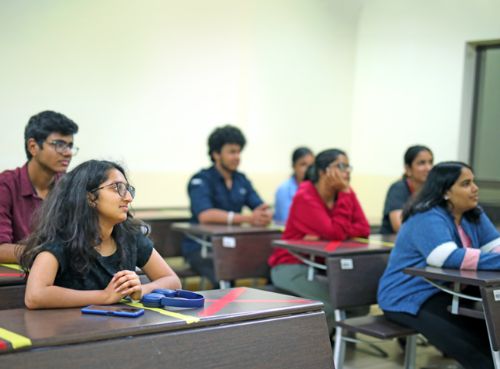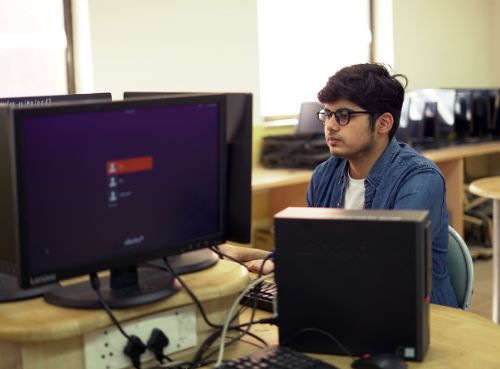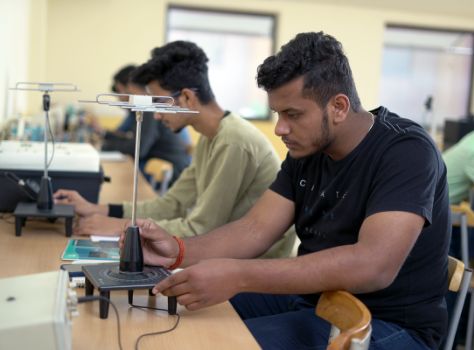Undergraduate and Integrated Programmes
Laying a strong foundation
Students can customise 31 per cent of the curriculum as they have the freedom to choose electives and decide which projects they wish to work on.
Today, technology is transforming the world at a faster pace and in more fundamental ways than ever before. The business world is accordingly evolving, especially as young startups explore sunrise sectors and create new opportunities. Job trends indicate that the skills of the future would be Big Data Analytics, Cloud & Cyber Security, IoT, Artificial Intelligence and other such digital technologies.
Our industry-linked and research-driven programmes ensure that NUtons are up to speed with the challenges of the digital age. All programmes follow a multi-disciplinary approach comprising Engineering, Basic Sciences, Humanities & Social Sciences, R&D and Capstone Projects, laboratory experience, Activity-Oriented Courses and Industry Practice. Students can customise the curriculum to match their interests and also specialise in a stream of their choice.
77%

Integrated MBA (iMBA)
- Marketing & Marketing Analytics
- Entrepreneurship
- Finance, Banking & FinTech
- Business Analytics
- Communication & Media Studies
- Digital & Social Media Marketing

Integrated MSc (iMSc)
- Big Data Engineering
- Data Science
- Cyber Security
- Cloud Computing
- Computational Biology
- Bioinformatics
Programme architecture
BTech
The 4-year BTech programme comprises eight semesters.
- 1. Core Foundation courses
- Basic Sciences and Mathematics
- Engineering Science and Technical Arts
- Humanities and Social Sciences; Management
- 2. Professional Core courses
- Classroom courses
- Projects (R&D Projects, Capstone Projects)
- 3. Elective courses
- Professional Electives
- Open Electives
- 4. Industry Internship
- Industry Practice
- Summer internship (Optional)
- 5. Mandated courses (by regulation)
Integrated MTech (iMTech)
Integrated MBA (iMBA)
The 4-year iMBA programme comprises eight semesters and offers comprehensive management education combined with in-depth domain-specific specialisation. It includes:
- Foundation courses
- Professional Core courses
- Humanities and Social Sciences
- Practicum
- Professional electives for specialisation
- Open electives
76%
“to successfully step out into the real world”
Integrated MBA (iMBA)
NU’s iMBA programme includes analytical and functional courses from diverse areas such as mathematics, statistics, business ethics and business law as well as courses from psychology, sociology and economics to promote an understanding of humanities and social sciences.
The first five semesters comprise foundation, management core, and humanities and social sciences courses. The first semester also includes an additional practicum course on contemporary business issues.
Students take their specialisation courses and open electives in the sixth and seventh semesters. They can take open electives from any other programme or area of their choice.
The eighth and final semester focuses on practicum or experiential learning through a six-month Industry Practice





